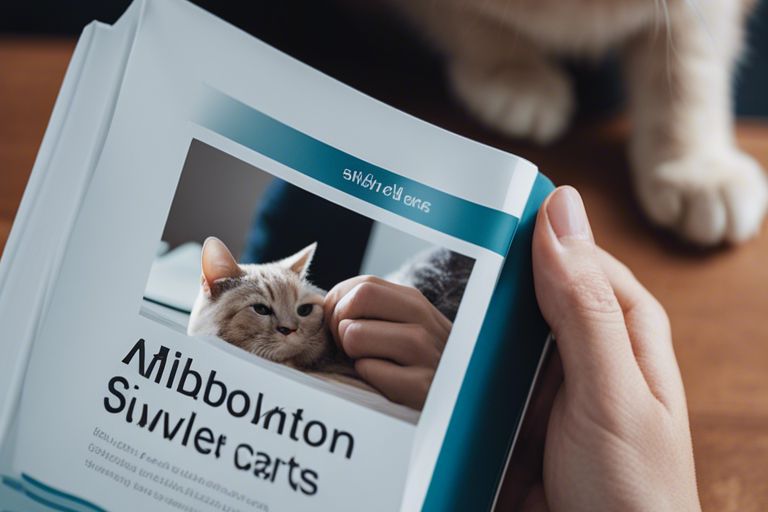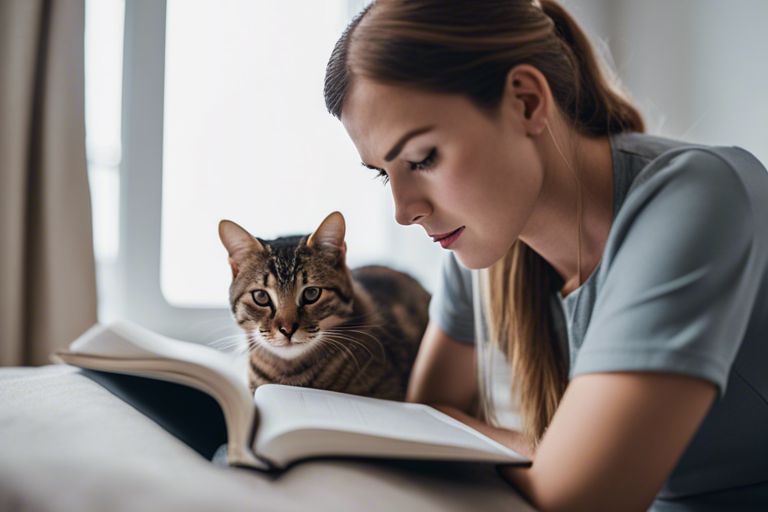Have you noticed that your cat’s abdomen seems to be swollen? It’s important to pay attention to this abnormal symptom as it can indicate a serious underlying health issue. While some causes of a swollen abdomen in cats may not be cause for immediate concern, it’s crucial to be aware of the potential dangerous conditions that could be responsible for this symptom. In this blog post, we will discuss the possible reasons for your cat’s swollen abdomen and when it’s time to seek urgent medical attention from your veterinarian. Your cat’s health and well-being should always be a top priority, so let’s explore this topic together.
Key Takeaways:
- Swollen abdomen in cats can be a sign of a serious health issue. It is not normal for a cat to have a swollen abdomen, and it could indicate a medical problem that needs immediate attention.
- Common causes of a swollen abdomen in cats include fluid buildup, tumors, or organ enlargement. These conditions can range from mild to life-threatening, so it is crucial to seek veterinary care if you notice your cat’s abdomen becoming swollen.
- Other symptoms, such as vomiting, diarrhea, or difficulty breathing, may accompany a swollen abdomen. These additional signs can provide clues to the underlying cause and should be reported to your veterinarian.
- Treatment for a swollen abdomen in cats will depend on the underlying cause. Your veterinarian will likely perform diagnostic tests, such as bloodwork and imaging, to determine the reason for the swelling and develop an appropriate treatment plan.
- Regular veterinary check-ups are essential for maintaining your cat’s health and detecting potential issues early. Monitoring your cat’s overall well-being and promptly addressing any concerning symptoms can help ensure a long and healthy life for your feline companion.
Common Causes of Swollen Abdomen in Cats
The swollen abdomen in your cat could be due to a variety of reasons, some of which are fairly common. Understanding the potential causes can help you take appropriate action to address the issue and ensure the health and well-being of your feline friend.
Digestive Issues
If your cat has a swollen abdomen, it may be a sign of digestive issues. This could include issues such as constipation, tumors, or a buildup of gas in the intestines. These conditions can cause your cat’s abdomen to become distended and uncomfortable. Additionally, if your cat has eaten something indigestible, it could lead to an obstruction in the digestive tract, resulting in a swollen abdomen and potential discomfort for your pet.
Medical Conditions
In some cases, a swollen abdomen in your cat could be indicative of underlying medical conditions. These may include conditions such as feline infectious peritonitis (FIP), liver disease, or heart failure. These conditions can lead to fluid accumulation in the abdominal cavity, resulting in a swollen appearance. It’s important to note that these medical conditions can be serious and may require immediate veterinary attention to properly diagnose and treat.
Diagnosis and When to See a Vet
Now that you have observed your cat’s swollen abdomen, it is important to consider the possible causes and next steps. This symptom could be a sign of a serious health issue like fluid accumulation, tumor, or other underlying conditions. If you suspect your cat has a swollen abdomen, it is crucial to seek veterinary attention for a proper diagnosis and treatment plan. You can find more information on bloating in cats here.
Observing Symptoms and Behavior Changes
If you notice your cat’s abdomen is swollen, you should also pay attention to other symptoms and behavior changes. Is your cat eating and drinking normally? Are they urinating and defecating regularly? Have you observed any changes in their activity level, such as lethargy or restlessness? Monitoring these factors can provide valuable information for your veterinarian to make an accurate diagnosis.
The Importance of Veterinary Consultation
When it comes to your cat’s health, it is essential to consult with a veterinarian as soon as possible. Swelling in the abdomen can be a serious indication of an underlying health issue that needs immediate attention. Your vet will conduct a thorough examination, including diagnostic tests such as blood work, ultrasound, or X-rays, to determine the cause of the swelling. Early detection and intervention can be crucial for your cat’s well-being.
Treatment Options
Unlike humans, cats cannot tell us what is wrong, making it difficult to diagnose the cause of a swollen abdomen. However, once the cause has been identified, your vet will discuss the appropriate treatment options with you. The course of treatment will largely depend on the underlying cause of the swelling, and can range from medical interventions to home care and management.
Medical Interventions
If your cat’s swollen abdomen is caused by a medical condition such as Feline Infectious Peritonitis (FIP) or liver disease, your vet may recommend specific medical interventions. This may include medication to reduce inflammation and fluid accumulation, as well as procedures such as drainage of excess fluid to provide relief from discomfort. It is important to follow your vet’s recommendations closely and ensure your cat receives the prescribed treatment on schedule.
Home Care and Management
Depending on the underlying cause of the swollen abdomen, your vet may recommend home care and management strategies to alleviate your cat’s discomfort. This may involve changes to your cat’s diet, such as reducing sodium intake to help control fluid accumulation, or administering prescribed medication at home. You may also need to monitor your cat for any changes in behavior or symptoms, and report back to your vet regularly on your cat’s progress.
Prevention and Healthy Practices
To keep your cat healthy and prevent issues such as a swollen abdomen, there are several important practices you should incorporate into their routine care. By being proactive and attentive to your cat’s needs, you can help ensure they live a long and healthy life.
Routine Health Check-ups
It is important to schedule regular check-ups with your veterinarian to monitor your cat’s overall health. During these visits, your vet can examine your cat for any signs of illness or irregularities, including a swollen abdomen. Additionally, they can administer vaccinations and preventative treatments to keep your cat safe from common diseases and parasites. By staying on top of these routine check-ups, you can catch any potential health issues early and take necessary action.
Diet and Exercise Guidelines
Feeding your cat a well-balanced diet and providing opportunities for regular exercise are essential for their overall well-being. Ensure that you are feeding your cat a high-quality, nutritionally balanced diet that is appropriate for their age, weight, and activity level. Additionally, make sure your cat has opportunities for play and exercise to help maintain a healthy weight and promote good muscle tone. This can help prevent obesity, which can contribute to a number of health issues, including a swollen abdomen. Providing proper nutrition and regular exercise are essential components of a healthy lifestyle for your cat.

Is it normal for my cat to have a swollen abdomen?
Upon reflecting on the possible reasons for your cat’s swollen abdomen, it is important to note that while some mild bloating may be normal, a consistently swollen or distended abdomen could indicate an underlying health issue. It is not normal for your cat to have a persistently swollen belly, and you should schedule a visit to the veterinarian as soon as possible to rule out any serious conditions such as fluid retention, organ enlargement, or tumors. Ignoring this symptom could be detrimental to your cat’s health, so it is crucial to seek professional advice and treatment promptly.
FAQ
Q: Is it normal for my cat to have a swollen abdomen?
A: Swollen abdomen in cats can be a sign of a serious health issue. It is not normal for a cat to have a swollen abdomen, and immediate veterinary attention is necessary to determine the cause and provide appropriate treatment.
Q: What are the possible causes of a swollen abdomen in cats?
A: There are several potential causes of a swollen abdomen in cats, including fluid accumulation (ascites) due to heart or liver disease, tumors, intestinal blockages, or pregnancy. It is crucial to have your cat evaluated by a veterinarian to determine the underlying cause.
Q: How can I help prevent my cat from developing a swollen abdomen?
A: To help prevent your cat from developing a swollen abdomen, ensure that they have a balanced diet, regular exercise, and routine veterinary check-ups. Promptly address any changes in your cat’s behavior or physical appearance, as early detection and treatment of underlying health issues can prevent the development of a swollen abdomen.

Jayley, a devoted cat enthusiast, also writer for other cat blog as well. She aims to dedicated to providing comprehensive information, insights, and advice on everything you’d ever want to know about our whiskered companions.
